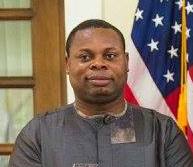When National Polls Meet Party Gatekeepers, Who Really Decides?-IMANI Brief
Global Info Analytics’ recent survey paints a vivid portrait of Ghana’s 2028 contest: Dr. Mahamudu Bawumia commands 56 percent of the national electorate and 70 percent of New Patriotic Party faithful, while within the National Democratic Congress, Haruna Iddrisu leads a tightly packed field with 27 percent, narrowly ahead of Johnson Asiedu Nketia on 26 percent and Dr. Ato Forson on 22 percent. Yet these headline figures—so eagerly dissected by pundits—only tell half the story. Even as the survey shows that 50 percent of NDC voters would hypothetically back Bawumia in the NPP race, the real test lies not in cross-party preferences for best known reasons but in the art of delegate persuasion. For in Ghana’s internal primaries, it is not the millions of registered voters but a few thousand delegates who ultimately confer the nomination that transforms poll front-runners into flagbearers.
Behind every eye-catching statistic lies the unyielding reality of party mechanics. Those poll figures may signal broad public appeal, but it is the delegates—station-level executives, constituency officers, regional representatives—whose votes determine flagbearers. These gatekeepers are tasked less with mirroring the nation’s mood than with safeguarding party orthodoxy, advancing loyalists, and maintaining intricate webs of patronage. Even the most beloved candidate must traverse this guarded path, courting a delegation that often prizes strategic alliances over raw electability.
Into this enclave of influence, strides the phenomenon of endorsements. When two hundred and twenty former Metropolitan, Municipal, and District Chief Executives publicly band together behind a candidate, their gesture carries weight far beyond mere sentiment. It signals unity to wavering delegates, whispers of inevitability, and can momentarily overshadow the grassroots enthusiasm reflected in national polls. Yet, when endorsements arise from party elites, they risk stifling spirited debate, creating an illusion of consensus rather than genuine momentum.
Layered atop these tensions is the persistent gender gap that punctuates Ghana’s political narrative. Despite the historic ascendancy of Prof. Naana Jane Opoku-Agyemang to the vice presidency, women remain conspicuously absent from the frontlines of presidential primaries. Delegate lists brim with familiar male faces while the voices of female activists and local leaders struggle to gain traction. This imbalance is neither accidental nor innocuous; it reflects structural biases that relegate half the nation to the margins of internal power struggles. Without deliberate reforms—quotas, expanded delegate inclusion, automatic running-mate mandates—these primaries risk reaffirming rather than challenging entrenched hierarchies.
When we widen our lens, party primaries emerge as a microcosm of Ghana’s broader democratic health. Opacity in delegate selection, the outsized sway of endorsement networks, and structural barriers to female participation all corrode public confidence—not only within parties but in the national electoral process itself. Voters ask: can a nation boast a robust democracy when the pathways to candidacy remain hidden from public view and dominated by entrenched interests?
The poll results from Global Info Analytics provide fertile ground for debate, but they do not guarantee a seamless road to the ballot box. Instead, they illuminate a paradox: widespread public support may glitter in headlines, yet real power remains concentrated within corridors of party edifices. As delegates convene, endorsements multiply, and gender imbalances persist, Ghana faces a critical choice. Will it allow internal democracy to stagnate behind veils of formality, or will it seize this moment to broaden participation, deepen transparency, and align its primaries with the spirit of popular will?
In the end, the true test of Ghana’s democratic resilience lies not in who leads the polls, but in how those polls translate into authentic, inclusive party contests. If the delegates’ ballots finally reflect the people’s voice—in diversity, in openness, in fairness—then the nation can look forward to an election season that embodies the very principles its constitution enshrines.
Recommendation
Parties should forge an integrated nomination framework which has a bearing on credible national polls. This will have the tendency to inform delegate choices and candidates strategies. Political parties can dissolve the divide between public sentiment and insider decision‐making, ensure that flagbearers truly reflect the electorate’s voice, and rebuild faith in every stage of the election cycle.
*Credit- IMANI’s Criticality Analysis of Governance and Economic Issues, June 29- July 5, 2025*


